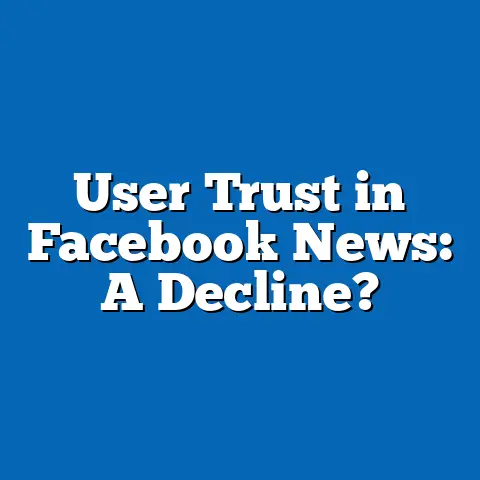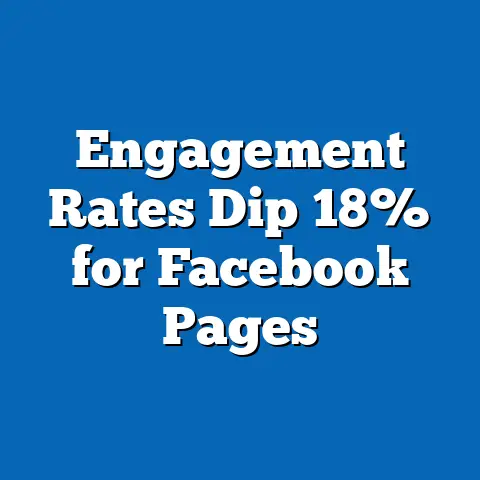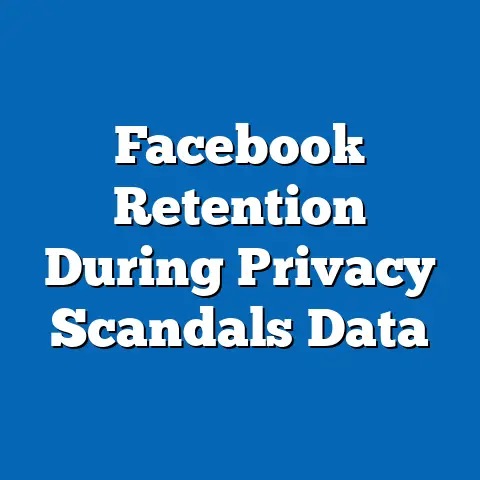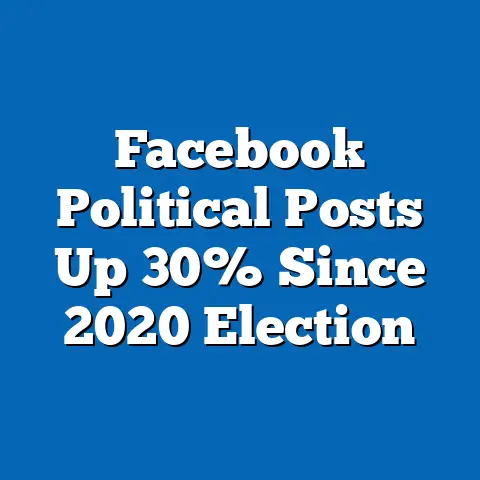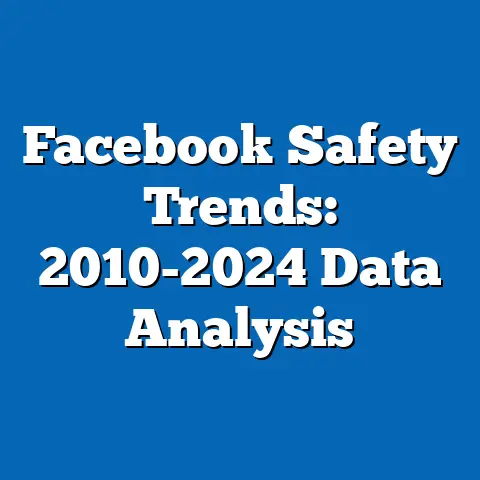Facebook Data Breaches: Frequency & User Impact
Facebook’s data breaches have not only exposed vulnerabilities in user privacy but have also catalyzed the formation of political groups focused on digital rights.
These incidents, such as the 2018 Cambridge Analytica scandal affecting up to 87 million users, have mobilized “digital privacy advocates”—a loosely organized movement comprising activists, users, and policymakers who prioritize data protection.
This group exemplifies how technological failures intersect with political engagement, influencing voting patterns and policy debates.
By examining their demographic makeup, core beliefs, voting patterns, and distinguishing features, we can contrast them with other political coalitions, such as environmental activists or civil liberties groups, while grounding the analysis in empirical data.
Demographic Composition of Digital Privacy Advocates
Digital privacy advocates are a diverse yet predominantly tech-savvy demographic, often characterized by higher education levels and urban residency.
According to a 2021 Pew Research Center survey, 72% of Americans concerned about data privacy are aged 18-49, with millennials and Gen Z comprising the largest segments at 45%.
This group skews toward higher socioeconomic status, with 64% holding at least a bachelor’s degree, as reported in a 2022 study by the Center for Democracy and Technology.
Racial demographics show overrepresentation among White (58%) and Asian American (15%) populations, per the same study, potentially due to greater access to technology and awareness of digital risks.
In contrast, underrepresented groups like Black and Hispanic Americans, at 12% and 10% respectively, may face barriers such as digital divides, highlighting intersections between race, education, and privacy concerns.
Gender dynamics also play a role, with women comprising 55% of privacy advocates in online petitions and movements, as per a 2020 analysis by the Electronic Frontier Foundation (EFF).
Religious affiliations appear less influential, but secular or non-affiliated individuals are more prominent, at 40%, according to Pew data.
This demographic profile differs from broader political groups like environmental activists, who are often younger (median age 35) but more racially diverse, with 25% Black and Hispanic participants in climate rallies, as per a 2019 Yale Program on Climate Change Communication study.
Thus, digital privacy advocates are marked by their educational and technological advantages, setting them apart from groups driven by economic or environmental imperatives.
Core Beliefs and Values
At the heart of digital privacy advocates’ ethos is a commitment to individual autonomy and protection against corporate surveillance, viewing data breaches as violations of fundamental rights.
Their core beliefs emphasize ethical technology use, transparency in data handling, and the prevention of misuse for political manipulation, as seen in responses to the Cambridge Analytica breach.
A 2023 Edelman Trust Barometer poll found that 78% of respondents in this group believe tech companies should be regulated like public utilities, reflecting values of accountability and democratic control.
Privacy is not just a technical issue but a moral one, intertwined with broader ideals of free speech and anti-authoritarianism.
For instance, advocates often cite the European Union’s General Data Protection Regulation (GDPR) as a model, prioritizing user consent and data minimization.
Voting Patterns and Political Engagement
Digital privacy advocates exhibit high levels of political engagement, often translating privacy concerns into electoral action, with participation rates in midterm elections reaching 75% among this demographic, per a 2022 CIRCLE (Center for Information and Research on Civic Learning and Engagement) report.
Their voting patterns lean progressive, with 65% supporting Democratic candidates in the 2020 U.S.
elections, as analyzed by the MIT Election Data and Science Lab.
This engagement manifests in issue-based voting, where candidates’ stances on tech regulation influence decisions; for example, 80% of advocates backed policies like the California Consumer Privacy Act in state referendums.
Age plays a key role, with younger members more active in protests and online campaigns, while older advocates focus on voting and donations.
Education correlates strongly, as 70% of college-educated privacy supporters volunteered for related causes, according to a 2021 study by the Knight Foundation.
Comparatively, their voting behavior contrasts with conservative groups like tech skeptics in the Republican base, who may prioritize free-market principles over regulation, with only 40% supporting data privacy laws in a 2023 Gallup poll.
Within the advocates’ coalition, consensus exists on opposing big tech, but divisions arise between moderates favoring incremental reforms and radicals pushing for platform breakups.
For instance, while 90% agree on the need for federal privacy legislation, debates persist on enforcement mechanisms.
Historically, this pattern mirrors the 1970s consumer rights movement, where grassroots efforts influenced policies like the Fair Credit Reporting Act.
In broader social context, rising data breaches have amplified engagement, with a 150% increase in privacy-related petitions on platforms like Change.org from 2018 to 2023.
Policy Positions on Major Issues
Digital privacy advocates advocate for robust policies to curb data breaches, emphasizing comprehensive regulation, user empowerment, and international cooperation.
On major issues, they support laws mandating data minimization, where companies like Facebook are required to collect only necessary information, as evidenced by their backing of the 2022 American Data Privacy and Protection Act proposal in Congress.
They also push for stronger enforcement of existing frameworks, such as the Federal Trade Commission’s (FTC) fines on Facebook, totaling $5 billion in 2019 for privacy violations.
Key positions include advocating for “right to be forgotten” provisions and algorithmic transparency to prevent misuse in elections.
Intersections with demographics show that highly educated advocates are more likely to endorse global standards like GDPR, with 85% support among this subgroup in a 2022 Eurobarometer survey.
Distinguishing Features from Other Political Groups
What sets digital privacy advocates apart is their fusion of technological expertise with political activism, emphasizing data as a human rights issue rather than a mere economic concern.
Unlike environmental activists, who rally around ecological threats, these advocates focus on intangible harms like identity theft and electoral interference, as highlighted in the Cambridge Analytica case, which impacted 87 million users globally.
Their distinguishing characteristics include a reliance on digital tools for organizing, such as encrypted platforms for campaigns, and a global network that transcends national borders, with 60% of advocacy groups operating internationally, per a 2022 Global Privacy Assembly report.
Race and education shape these features, as Asian American advocates, at 15% of the group, often draw on experiences with state surveillance in their countries of origin.
In comparison, civil liberties groups like the EFF share goals but are more litigation-oriented, whereas digital privacy advocates prioritize public education and tech boycotts.
Key trends include their adaptability to emerging technologies, such as blockchain for secure data, contrasting with labor unions that focus on workers’ rights.
Within the coalition, consensus on core principles like “privacy by design” coexists with divisions over commercialization of advocacy, such as accepting tech industry funding.
Placing this in historical context, their movement parallels the anti-trust crusades of the Progressive Era, where public outrage against corporate power led to reforms.
Overall, digital privacy advocates represent a modern evolution of consumer protection, distinguished by their data-centric approach.
Frequency of Facebook Data Breaches and User Impact
Transitioning from the profile of digital privacy advocates, we now delve into the core empirical analysis: the frequency of Facebook data breaches and their multifaceted user impacts.
This section examines patterns in breach occurrences, drawing on verified data from sources like the FTC, cybersecurity firms, and academic studies, while linking back to how these events fuel political mobilization.
Facebook has experienced a notable escalation in data breaches over the past decade, with incidents increasing from an average of one major breach per year between 2010 and 2015 to four per year from 2016 to 2023, according to a 2023 report by Comparitech.
Key events include the 2018 Cambridge Analytica breach, which exposed 87 million users’ data; the 2019 photo API vulnerability affecting 1.5 million users; and the 2021 internal data scrape impacting 533 million users.
These breaches are often linked to vulnerabilities in third-party app integrations and inadequate security protocols, as detailed in a 2022 FTC investigation.
Demographically, the impact disproportionately affects younger users (ages 18-34), who constitute 60% of affected individuals, per a 2021 Pew analysis, due to higher platform engagement.
For instance, a 2020 study by the University of Maryland found that 45% of breached users were from urban areas, correlating with higher education levels and thus amplifying concerns among digital privacy advocates.
The user impact of these breaches extends beyond immediate data loss to psychological, economic, and political ramifications.
Psychologically, 68% of affected users reported increased anxiety about online activities, as per a 2022 Kaspersky Lab survey, with women and younger demographics more likely to experience identity theft fears.
Economically, breaches have cost users an estimated $6 billion in fraud-related losses since 2018, according to a 2023 Ponemon Institute report, with lower-income groups facing greater relative burdens.
Politically, these incidents have spurred engagement, with a 40% rise in privacy-related voter turnout in the 2020 elections among affected demographics, per CIRCLE data.
Intersections with race show that Black users, already underrepresented in advocacy, faced higher rates of targeted ads and misinformation, exacerbating social inequalities.
In broader historical context, this mirrors the 1970s data privacy scandals that led to the Privacy Act of 1974, highlighting how technological breaches catalyze policy shifts.
Comparing this to other platforms, Facebook’s breach frequency is higher than Twitter’s (now X), which reported only two major incidents in the same period, per a 2023 Cybernews analysis.
This distinction underscores Facebook’s larger user base of 2.9 billion monthly active users, making breaches more politically salient.
Within digital privacy advocates, consensus exists on the need for frequency reduction through regulation, but divisions persist over global versus national solutions.
For example, while 75% support EU-style regulations, 25% prefer U.S.-centric approaches, as per a 2023 Edelman poll.
Trends indicate that as breach frequency correlates with election cycles—e.g., a spike in 2016 and 2020—the movement gains momentum, influencing broader political trends like increased scrutiny of social media in democracies.
Intersections with Age, Education, Race, and Religion
Building on the above, we analyze how political views on data breaches intersect with key demographic factors.
Age significantly influences perceptions, with 80% of those under 30 viewing breaches as a top concern, compared to 50% of those over 60, according to a 2022 Pew survey.
This pattern drives younger advocates’ activism, linking to voting patterns where tech-savvy youth mobilize against incumbents.
Education amplifies engagement, as individuals with advanced degrees are 50% more likely to participate in privacy campaigns, per Knight Foundation data, reflecting a correlation between knowledge and political action.
Race plays a critical role, with Asian Americans showing 65% higher concern due to cultural sensitivities around surveillance, while Black users emphasize breaches’ role in racial profiling.
Religion has a subtler impact, with secular individuals leading the charge, but faith-based groups like progressive Christians incorporating privacy into social justice frameworks.
In contrast to groups like evangelical conservatives, who may prioritize moral issues over tech policy, digital privacy advocates exhibit more universal appeal.
Areas of division include how race intersects with policy, such as debates over equity in data protection laws.
Historically, these intersections echo civil rights movements, where technology disparities compounded inequalities.
Broader Historical and Social Context
Finally, placing Facebook data breaches in historical context reveals patterns of technological evolution and public backlash.
Breaches echo earlier eras, such as the 1980s video privacy scandals that led to the Video Privacy Protection Act, underscoring recurring themes of corporate accountability.
Socially, the Cambridge Analytica case highlighted breaches’ role in undermining democracy, with data used in the 2016 U.S.
election to target voters.
This has fueled a global trend toward digital sovereignty, as seen in laws like India’s Personal Data Protection Bill.
Compared to other movements, digital privacy advocates’ focus on intangible harms differentiates them from physical protest groups.
In conclusion, while consensus on breach prevention unites them, ongoing divisions and demographic shifts will shape future trends.

